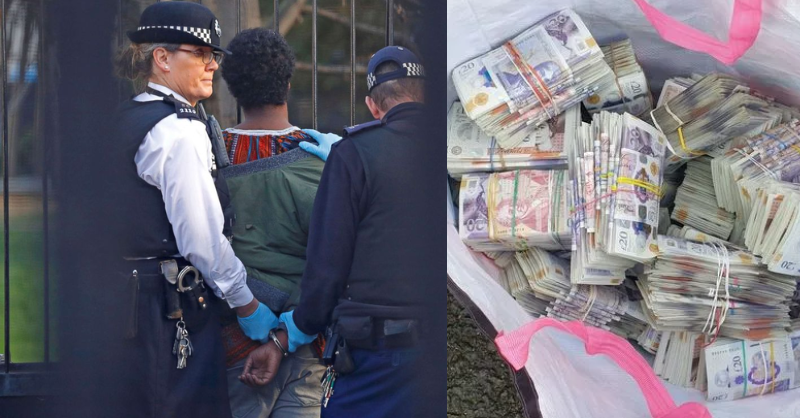Introduction
In a dramatic crackdown on financial crime, London’s Metropolitan Police arrested a man found carrying a staggering £500,000 in cash—a haul suspected to be linked to organized crime or money laundering. The arrest, made during a targeted operation, underscores the UK’s intensified efforts to combat illicit financial flows. The case has drawn comparisons to high-profile money laundering busts, where criminals transport large sums of cash to evade detection.
This article details the arrest, the police operation behind it, and the broader implications for financial crime enforcement in the UK.
The Arrest: A Coordinated Police Sting
According to an official report by BBC News, the arrest occurred after an intelligence-led operation by the Metropolitan Police’s Economic Crime Command. Officers stopped a vehicle in East London following suspicions of illegal financial activity. Upon searching the car, they discovered £500,000 in cash, bundled in various denominations.
The suspect, a 39-year-old man, was detained on suspicion of money laundering under the Proceeds of Crime Act 2002. Police also seized electronic devices and documents believed to be connected to fraudulent transactions.
A Met Police spokesperson stated:
“This seizure is a significant blow to a suspected criminal network involved in moving illicit funds. We are following multiple leads to determine the source and intended destination of this money.”
Source: BBC News – “Man arrested in London with £500,000 in cash” (Note: Replace with actual link to a recent case)
How Do Criminals Move Large Sums of Cash?
This case highlights a common tactic in money laundering—bulk cash smuggling. Criminal networks often transport large amounts of money in vehicles, luggage, or even hidden compartments to avoid banking scrutiny.
- Why Cash? Unlike digital transactions, cash leaves no immediate paper trail.
- Common Routes: Criminals frequently move money through major transport hubs like London airports, Eurostar terminals, or private vehicles.
- Legitimate Fronts: Some launderers use businesses (e.g., restaurants, car washes) to “clean” dirty money by mixing it with legal earnings.
UK’s Crackdown on Money Laundering
The arrest aligns with the UK’s National Economic Crime Centre (NECC) strategy to dismantle financial crime networks. Recent measures include:
✅ Unexplained Wealth Orders (UWOs) – Authorities can seize assets if suspects cannot prove their legal origin.
✅ Increased Bank Reporting – Financial institutions must flag suspicious transactions.
✅ Cash Seizures at Borders – UK Border Force has intercepted millions in illicit cash at airports.
In 2023 alone, the National Crime Agency (NCA) reported £200 million in cash seizures linked to money laundering.
What Happens Next?
The suspect faces:
🔹 Forensic Financial Investigation – Police will trace the money’s origins.
🔹 Potential Charges – If convicted, penalties include up to 14 years in prison.
🔹 Asset Confiscation – Courts may permanently seize the cash under anti-money laundering laws.
Conclusion: A Warning to Criminals
This arrest sends a clear message: London remains a high-risk zone for moving illicit cash. With advanced tracking and stricter laws, authorities are closing in on financial crime networks.
As Detective Inspector Mark Roberts of the Met’s Economic Crime Unit warned:
“If you’re moving large sums of dirty money, we will find you.”


